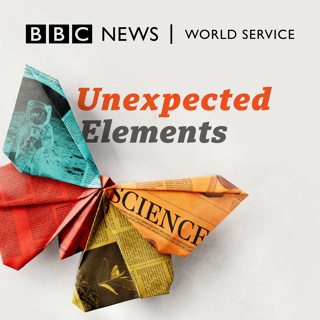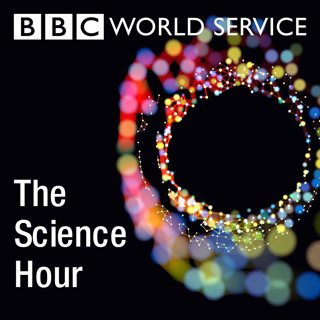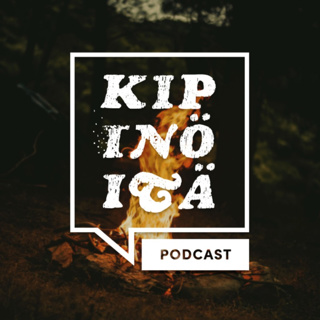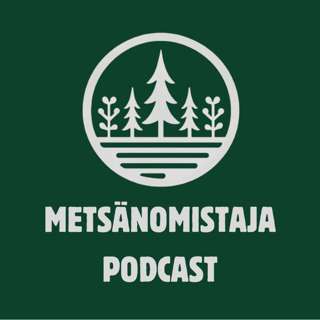
Story time
Much ado was made about a cancelled auction of an ultra-rare set of Shakespeare’s folios, which could have fetched millions of dollars. This headline – along with Shakespeare being one of the world’s most well-known playwrights – inspired the Unexpected Elements team to delve into the science of stories. First up, we find out why your brain loves a tale. We then discover that some people can’t see images in their mind when they read, and reveal the impact this could have.Shakespeare’s folios are almost 400 years old, but how have they survived that long? We get on the line with Kathryn Kenney, a book and paper conservator, to find out how she keeps precious books safe. We also find out about a disappearing island, whether climate change needs a new narrative and if you could eat books to survive. All that, plus many more Unexpected Elements. Presenter: Marnie Chesterton, with Camilla Mota and Tristan Ahtone Producer: Margaret Sessa Hawkins, with Alice Lipscombe-Southwell, Imaan Moin and Minnie Harrop Studio Manager: Rhys Morris
23 Touko 50min

Enduring it all
This month will see thousands of people take to streets around the world to test their feats of endurance. It’s marathon season. And this week, we’re looking at the science behind what keeps you running. We’ll learn about the psychological preparation that goes into undertaking mammoth challenges, like marathons and expeditions, and meet a scientist from the UK Space Agency who’s endured the Antarctic winter, and is now training to be an astronaut. We’ll find out just how genetic our ability to cope with endurance exercise is. How air pollution could be affecting your running times. And find out how evolution has gifted our animal friends with some unique ways of getting ahead. As well as all that, there’s the science of what makes something ugly. And an exciting innovation that could see us using cow dung to fuel our cars. All that and more in this week’s Unexpected Elements. Presenter: Alex Lathbridge, Chhavi Sachdev and Candice Bailey Producers: Robbie Wojciechowski with Alice Lipscombe-Southwell, Imaan Moin, and Minnie Harrop
16 Touko 49min

Ant antics
This week, a court in Kenya sentenced four men to either a year in prison or a fine of £5,800 for trying to smuggle 5,000 ants out of the country. The contraband included highly-valued ants like the giant African harvester ant, and it’s believed these ants were intended for exotic pet markets abroad. But all this talk of ant smuggling got the Unexpected Elements team feeling antsy to talk ants! We learn about the earliest ants who lived among dinosaurs, ants that can sniff cancer, and ants who were sent into space! Then we take a turn from ants to anteaters and talk to Mariella Superina from the International Union for Conservation of Nature about the different adaptations and skills needed for anteaters to successfully eat ants. Plus, we discuss plant smuggling and ant wrangling, both unexpectedly dangerous ventures. All that, plus many more Unexpected Elements. Presenter: Marnie Chesterton, with Leonie Joubert and Godfred Boafo Producers: Alice Lipscombe-Southwell, with Imaan Moin, Robbie Wojciechowski and Minnie Harrop
9 Touko 49min

In memoriam
On 21st April 2025, Pope Francis, the head of the Catholic Church, died. His funeral took place on 26th April, with thousands of mourners crowding into St Peter’s Square to pay their respects. Following the death of a Pope, there are centuries-old traditions and rituals that must be followed, and that got the Unexpected Elements team thinking about the science surrounding loss. First up, we delve into the thorny issue of when early humans started to carry out funerary rituals, before turning our attention to graveyards and the life that thrives within these sacred environments. Next, we are joined Carl Öhman from Uppsala University in Sweden, who reveals what happens to our data when we die and why we should care about it. Plus, we discuss the precious materials hiding in our old devices, and find out whether animals mourn. All that, plus many more Unexpected Elements. Presenter: Marnie Chesterton, with Andrada Fiscutean and Edd Gent Producers: Margaret Sessa Hawkins, with Alice Lipscombe-Southwell, Robbie Wojciechowski and Minnie Harrop
2 Touko 49min

Kenya believe it?
This week the Unexpected Elements team left our windowless BBC studio and paid a visit to the CGIAR conference in Nairobi, Kenya. In this episode, we find out about the Kenyan invention that’s pulling clean, safe water from thin air, before discovering what makes Kenyan coffee taste so great. Next, we hear about the problems with burning charcoal and the ways in which briquettes could offer a cleaner, more sustainable solution. Plus, we’re joined by Joyce Maru, the regional director for Africa at the International Potato Centre. She reveals the science behind the orange-flesh sweet potato and explains how it could improve livelihoods and boost health across Africa. We then hear about the story of the two Kenyan inventors who have created a Swahili-speaking robot. Finally, our panellists go against the clock in our Kenyan Science Showdown. All that, plus many more Unexpected Elements. Presenter: Alex Lathbridge, with Christine Yohannes and Phillys Mwatee Producers: Alice Lipscombe-Southwell, with Sophie Ormiston and Harrison Lewis Studio engineers: Andrew Garratt and Gayl Gordon
25 Huhti 49min

An eggciting episode
This week is the Christian celebration of Easter, which sent the Unexpected Elements team scrambling for egg-related stories. First up, we find out about the rise of a vegan egg substitute. Next, we discover how to cook the perfect boiled egg, according to science. We then turn our attention to climate change, and find out how it is affecting the breeding patterns and nesting behaviour of sea turtles. Plus, we are joined by Dr Luis Welbanks, who tells us about a nearby exoplanet that reeks of rotten eggs. Finally, we delve into the science behind IVF. All that, plus many more Unexpected Elements. Presenter: Marnie Chesterton, with Chhavi Sachdev and Sandy Ong Producer: Alice Lipscombe-Southwell, with Debbie Kilbride, Robbie Wojciechowski and William Hornbrook
18 Huhti 49min

Navigating northward
The Aurora Borealis – also known as the Northern Lights – won’t be at their peak activity much longer, and the Unexpected Elements team dreams of going north to see them. And that has got us looking at the science of navigating our way north! We hear about how humans have been using the sky to navigate for millennia, and we learn about how relying on GPS may be impacting our memory ability. And while humans use maps to get around, how do animals know where to go on their long migrations? To find the answer, we speak to Dr Kayla Goforth at Texas A&M University who studies exactly how sea turtles and monarch butterflies innately know how to navigate the world around them. We also learn why polar bears keep themselves ice-free, and we hear old records of the first men to reach the North Pole. All that, plus many more Unexpected Elements. Presenter: Caroline Steel, with Andrada Fiscutean and Phillys Mwatee Producer: Imaan Moin, with Alice Lipscombe-Southwell, Noa Dowling and William Hornbrook
11 Huhti 49min

Oh, Rats!
On World Rat Day, we’re getting ratty! We look at the biology behind the eternal struggle between rats and rat poison, and we hear about rat-on-rat warfare and other forms of pest control. We don’t play games when it comes to rats, but we know someone who does. Dr Michael Brecht from the Humboldt University of Berlin tells us how he played hide-and-seek with lab rats and what that tells us about the behaviour of play. On the topic of ‘rat’ behaviour, we are joined by Dr Zach Berry from the University of Southern California to talk about the psychology behind ratting people out in the workplace, testing the loyalty and morals of the Unexpected Elements team. And speaking of rats in the workplace… we hear a first-hand report on whether African giant pouched rats might just be better staff members than humans when it comes to detecting tuberculosis at APOPO labs. All that, plus many more Unexpected Elements. Presenter: Anand Jagatia, with Tristan Ahtone and Christine Yohannes Producer: Imaan Moin, with Debbie Kilbride, Alice Lipscombe-Southwell, Noa Dowling, Harrison Lewis and Sophie Ormiston. Studio Manager: Cath McGhee
4 Huhti 49min






















